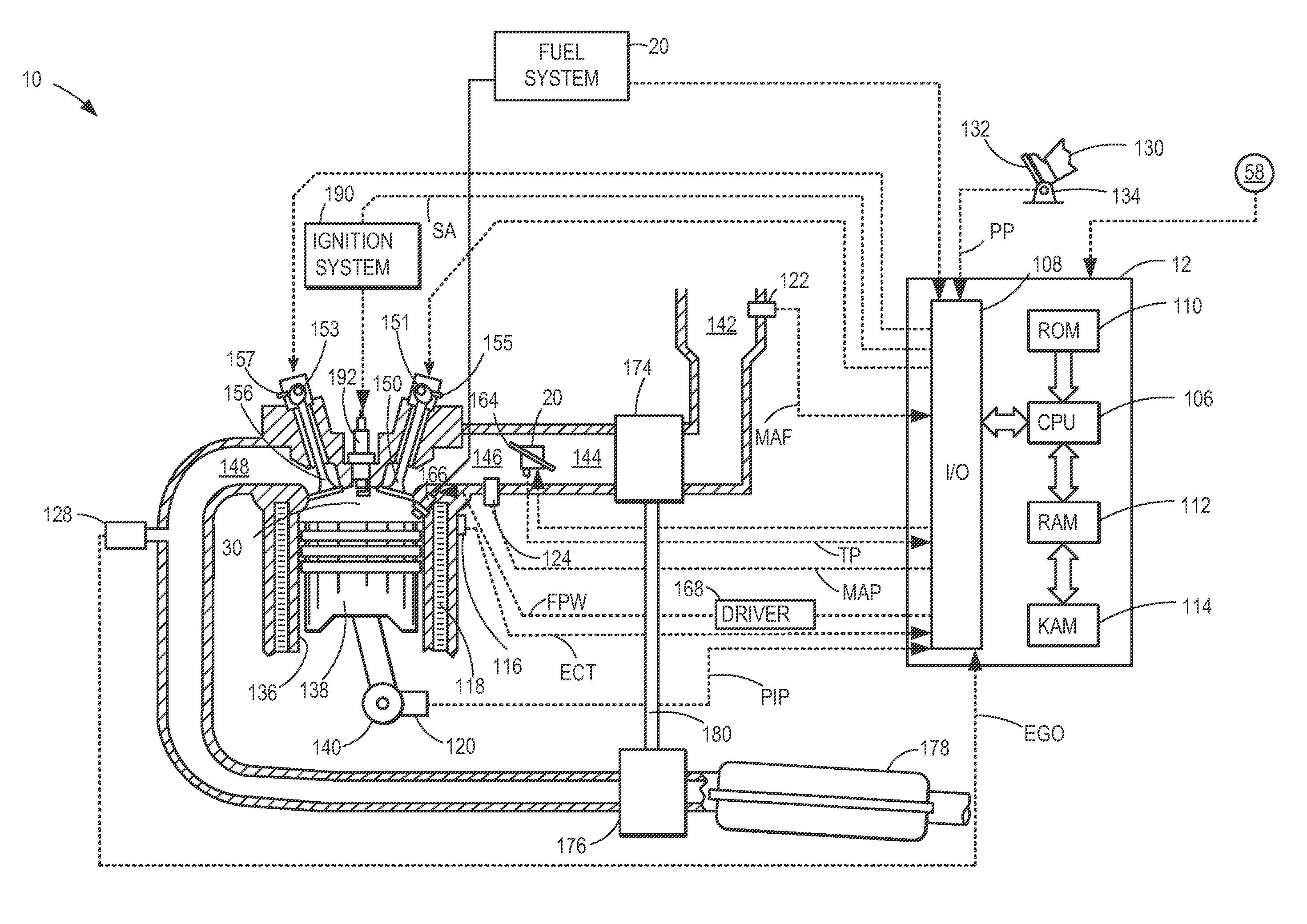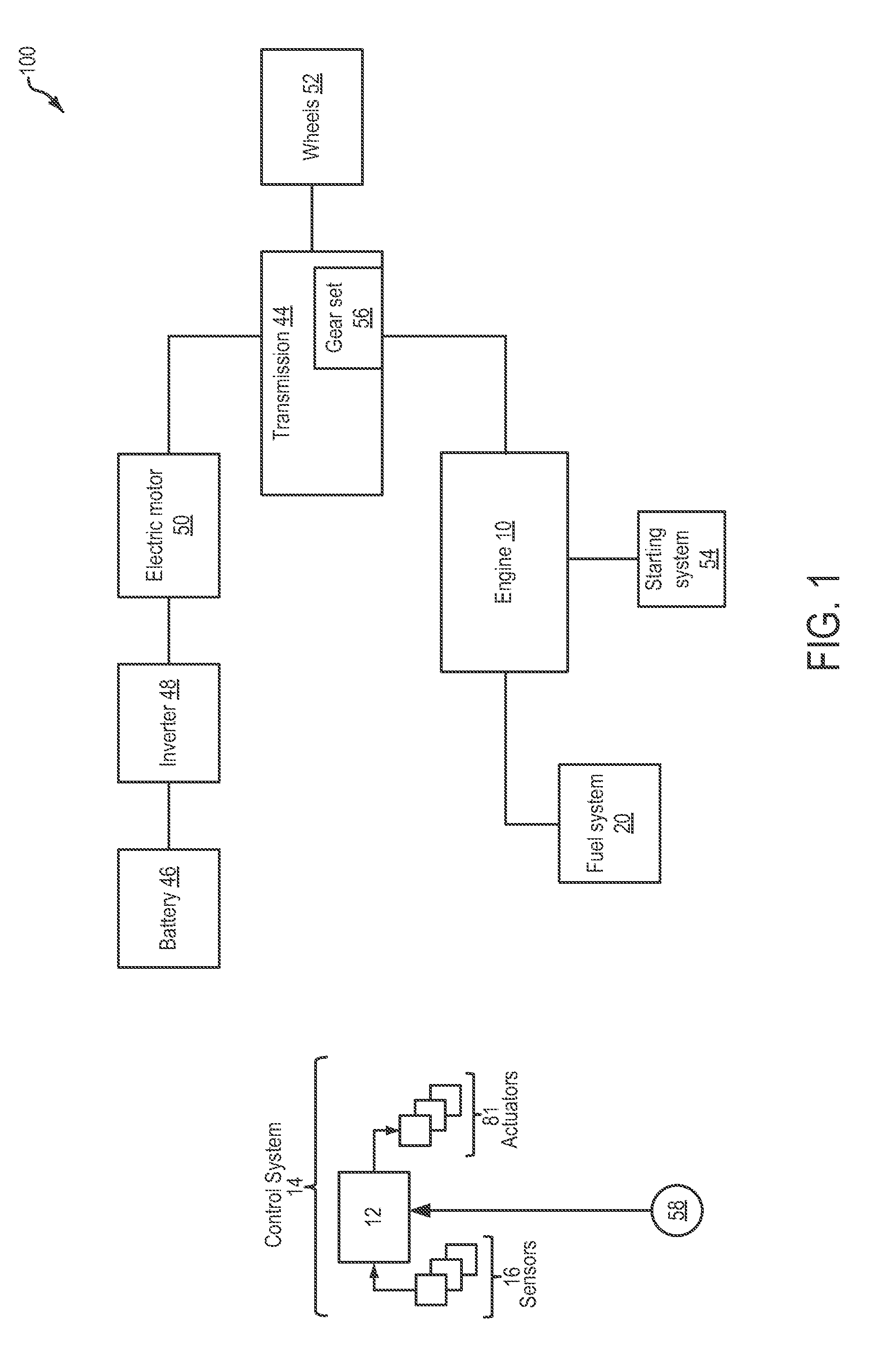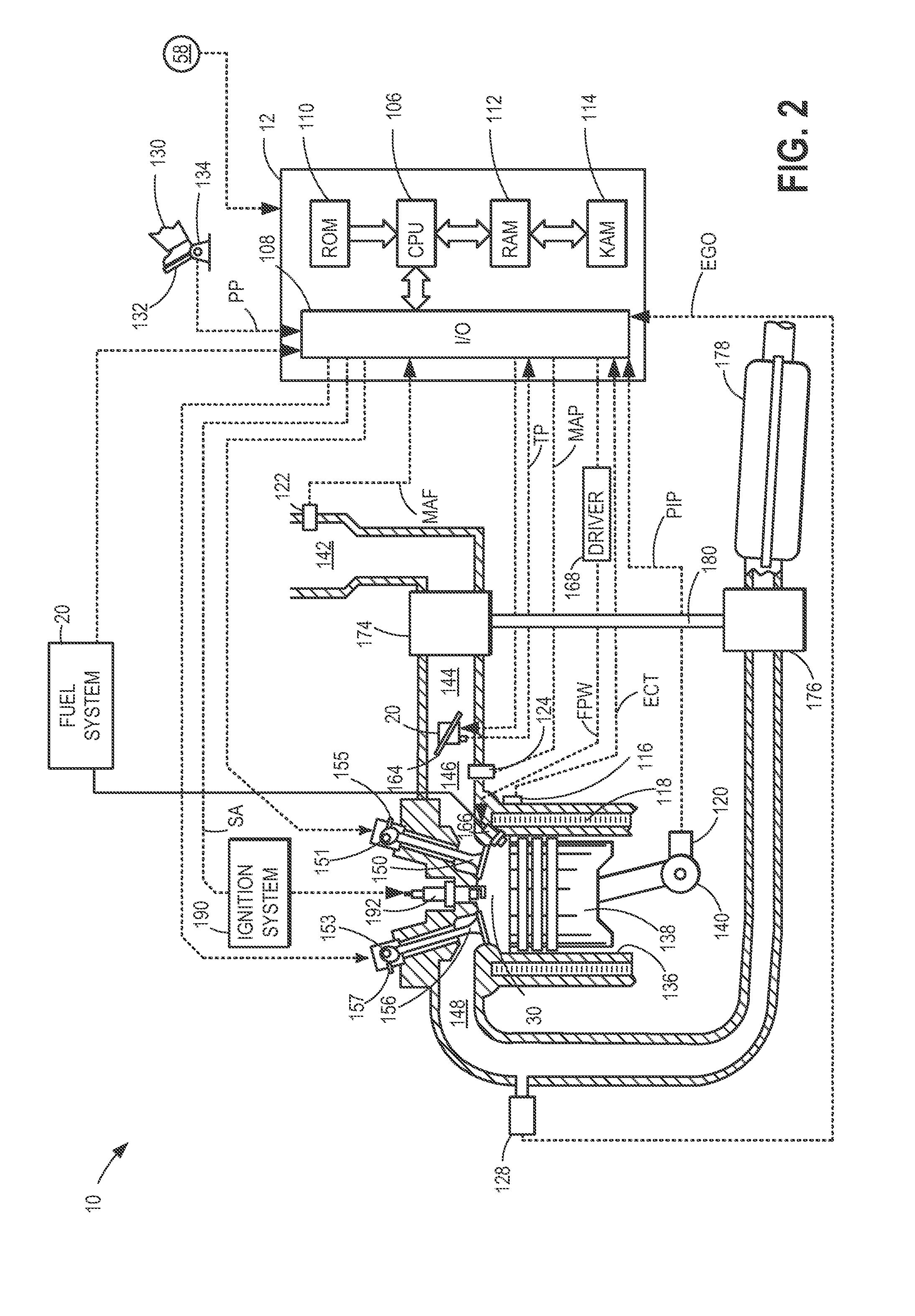Method and system for vehicle speed control
a vehicle speed control and speed control technology, applied in the field of vehicle speed control, can solve the problems of reducing battery performance, adversely affecting the operating life and storage capacity of the battery, and affecting the performance and fuel efficiency of the electric vehicle, so as to improve the life and performance of the battery, reduce the charging rate of the battery, and reduce the effect of regenerative braking
- Summary
- Abstract
- Description
- Claims
- Application Information
AI Technical Summary
Benefits of technology
Problems solved by technology
Method used
Image
Examples
Embodiment Construction
[0013]The following description relates to systems and methods for operating a hybrid vehicle, such as the hybrid electric vehicle (HEV) of FIGS. 1-2. During downhill travel, based on the estimated grade and further based on an input received from the vehicle operator, a combination of engine braking torque and regenerative braking torque may be used to maintain the vehicle at a predetermined downhill vehicle speed. An engine controller may be configured to perform a control routine, such as the routine of FIG. 3, to adjust a ratio of engine braking torque relative to regenerative braking torque used to maintain the downhill vehicle speed. The controller may further adjust a charging rate of a battery of the HEV. As illustrated in the example adjustments of FIGS. 4-5, in response to an operator input indicating that downhill travel is on a grade of sufficiently long duration (or distance), the controller may apply more engine braking torque at an earlier time during downhill travel ...
PUM
 Login to View More
Login to View More Abstract
Description
Claims
Application Information
 Login to View More
Login to View More - R&D
- Intellectual Property
- Life Sciences
- Materials
- Tech Scout
- Unparalleled Data Quality
- Higher Quality Content
- 60% Fewer Hallucinations
Browse by: Latest US Patents, China's latest patents, Technical Efficacy Thesaurus, Application Domain, Technology Topic, Popular Technical Reports.
© 2025 PatSnap. All rights reserved.Legal|Privacy policy|Modern Slavery Act Transparency Statement|Sitemap|About US| Contact US: help@patsnap.com



